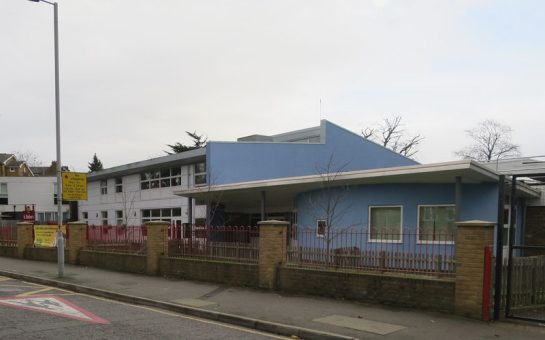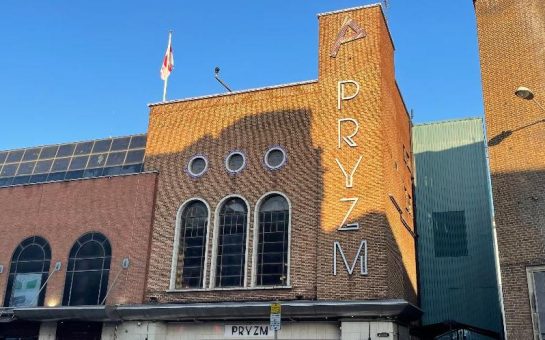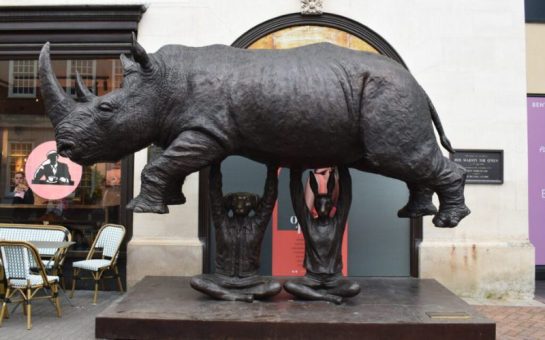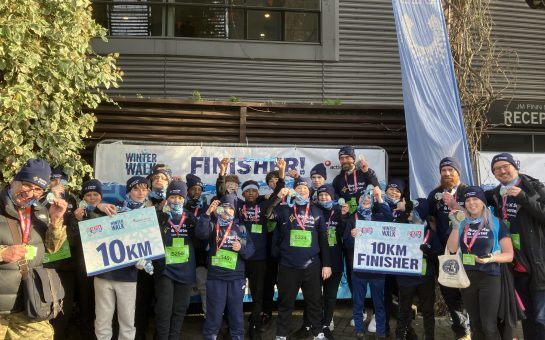By Tess Colley
August 8 2020, 08.25
Follow @SW_Londoner
The volunteer-run group Sewing4Kingston has sewn more than 35,000 items for frontline workers over lockdown.
The 1,5,00-strong group grew from just a handful of women – and a co-founder based in South Africa – to become a tour de force making hand-made items such as face coverings, hospital scrubs, and laundry bags.
Although a very community-centred initiative, one of the group’s chief architects, Amanda Argall, has been coordinating the swelling team of sewers, knitters, and the material depot – her mother’s house – from South Africa.
She said: “I don’t think it feels strange coordinating the group out of South Africa because of the internet.
“If there was no internet none of this would be happening.”
However, it wasn’t without its challenges.
She added: “At the beginning it was almost 24/7.
“I’m an hour ahead in South Africa, and I would often go to sleep and wake up in the morning and have more than 300 WhatsApp messages to catch up on.
“When we had a storm here we could loose internet and there could be half a day where I had no contact with anyone and we were feeling quite frantic because at the beginning it was so busy.”
Small Beginnings
Based out of Surbiton, Sewing4Kingston has delivered to an innumerable list of places, including Kingston Hospital, Kingston police force, London Ambulance services, and London’s British Transport Police.
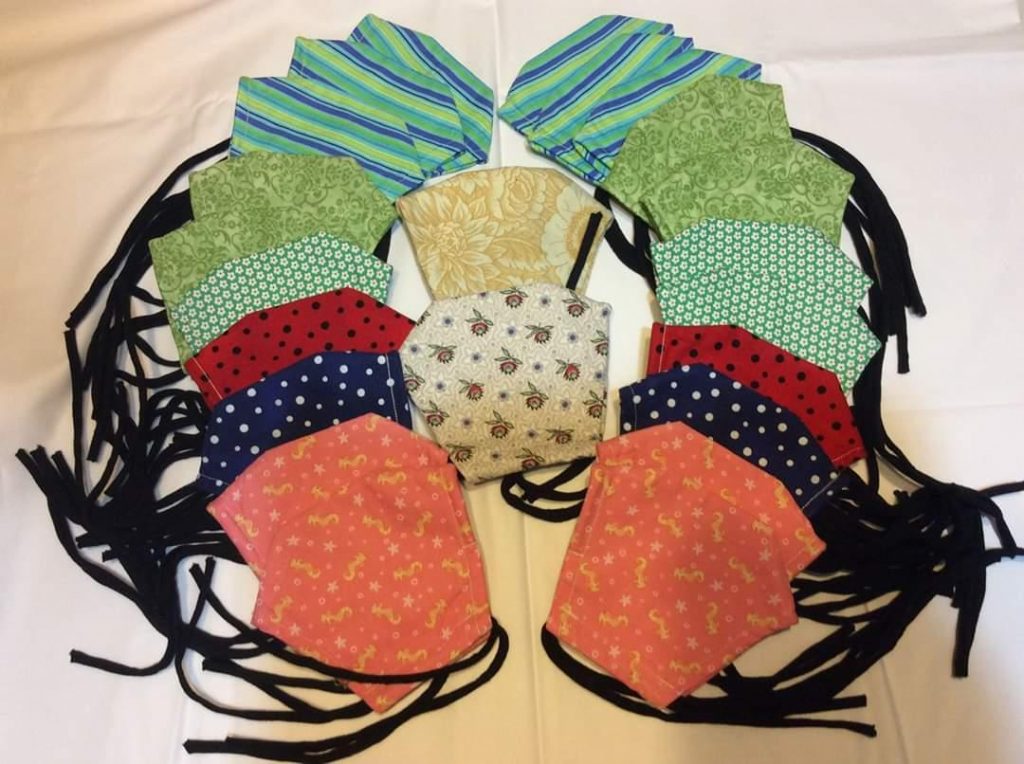
Mrs Argall, who grew up in Kingston and moved to South Africa in 2014, first became concerned with what was happening back on her home patch when she began seeing reports of bare shelves in British supermarkets as shoppers bulk bought basic foods like rice and pasta.
She joined the Surbiton coronavirus community response group on Facebook towards the beginning of lockdown to see when her mum, who still lives in the area, would be able to get some food from the shops.
However, she soon became very involved with the group.
When Kate Kenyon, who was to become Sewing4Kingston’s other co-founder, posted to say that a nurse at Kingston Hospital had requested 200 scrub laundry bags, Mrs Argall jumped at the idea.
She said: “Very quickly the whole group was talking about sewing and what have you.
“We set up Sewing4Kingston and basically it exploded from there.”
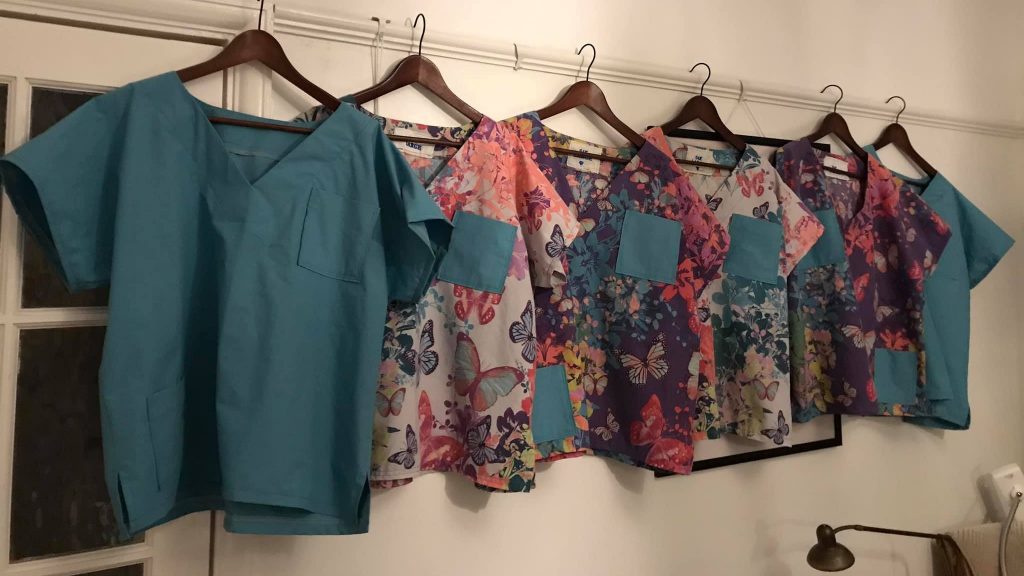
The Sewers
The group has brought in a wide range of people from many ages and backgrounds.
Mrs Argall said: “We’ve got everyone from Tiffin Girls School all the way through to grandmas and great-grandmas.”
Although the group is largely made up of women, Mrs Argall said they also have some male sewers, and a band largely made up of men who deliver the face coverings, scrubs, hair bands, and laundry bags around London.
She added: “We’ve got a lot of photos on the Facebook page where husbands have been drafted in to help.”
The Materials
To make more than 35,000 hand-made items you need a lot of material.
A number of companies donated fabric, buttons, cotton and elastic to the group.
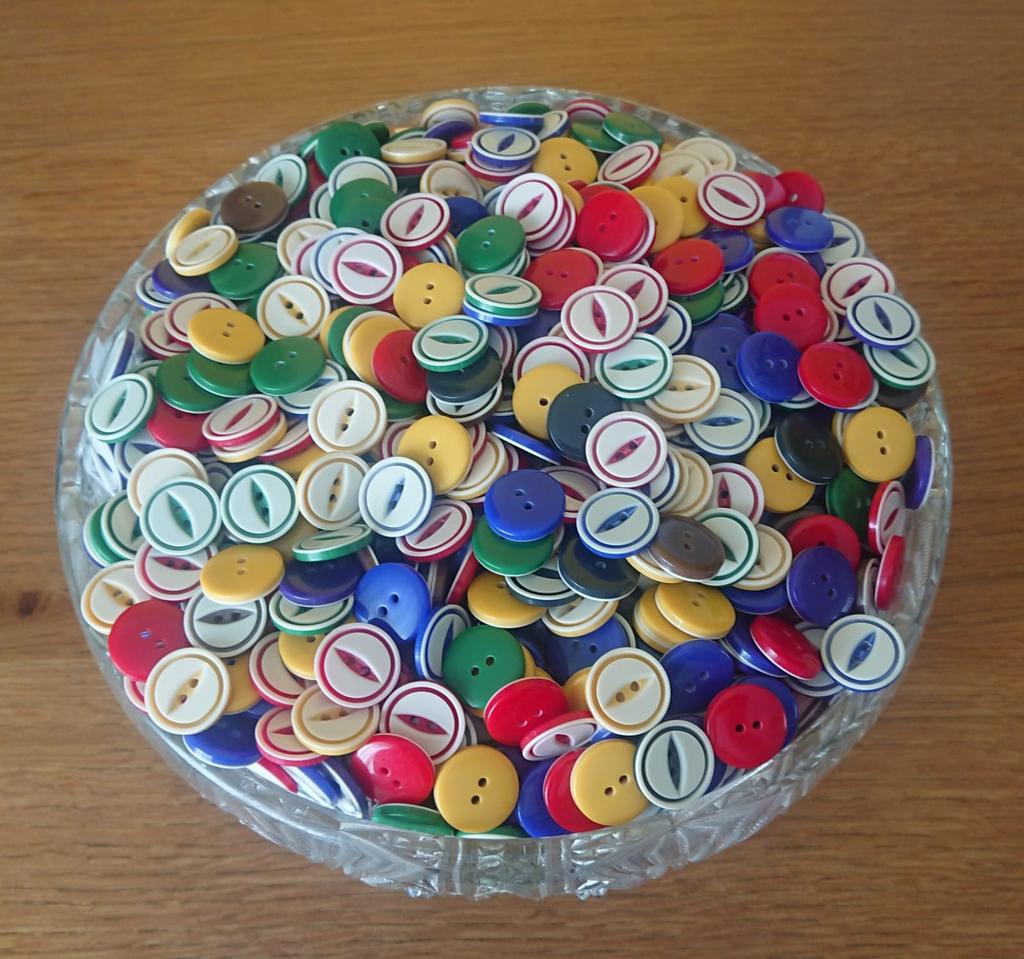
These companies ranged from the local, like Gina’s Bridal Services in Kingston who sewed multiple items, to national brands such as Claire’s Accessories and local branches of John Lewis and Waitrose.
Mrs Argall said: “With Claire’s, there was a bit of confusion as to why I was approaching them from South Africa.
“But once I had explained that, they organised 200 headbands and sent them through to us.”
The Tiffin Girls School also made more than 1,200 items including laundry bags, face coverings, and headbands.
What’s Next
As lockdown begins to ease and there is less demand for basic supplies the group are winding down their face-covering and scrub-making operation, but have no intention of un-knitting the group.
Sewing4Kingston will transform into a craft group where Mrs Argall won’t be as heavily involved, which will give her a much-needed break.
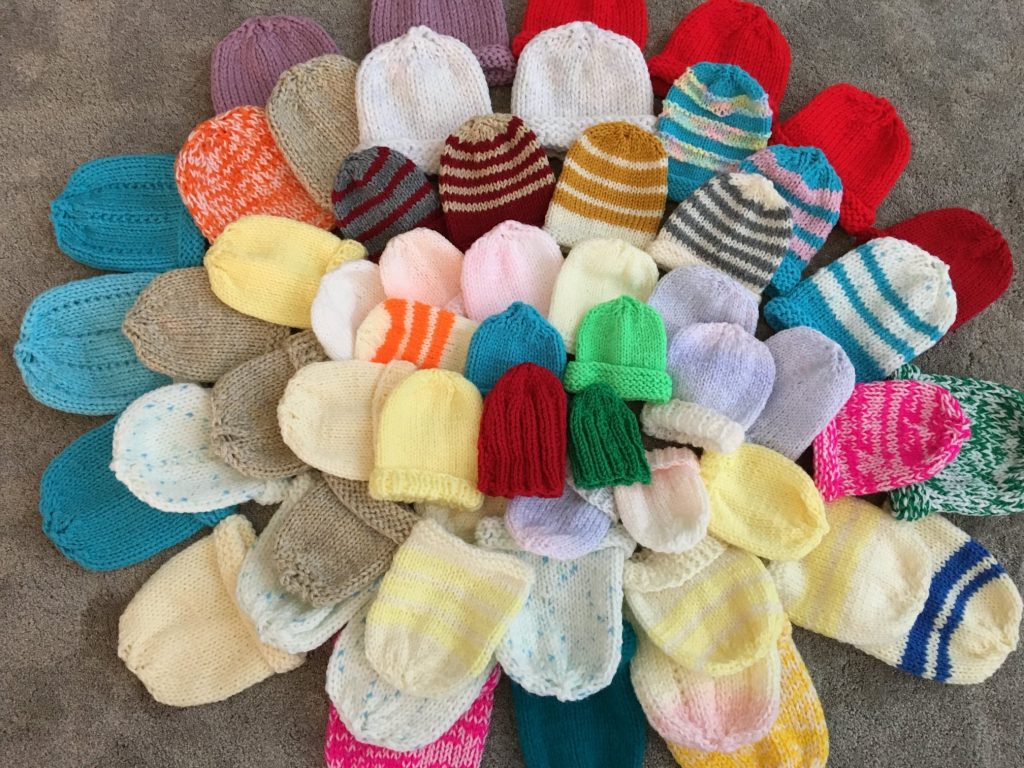
However, she added: “It’s a bit sad because it kind of gets under your skin – in a good way! I am looking forward to how the group progresses.”
Looking back on the what Sewing4Kingston achieved over lockdown, Mrs Argall said: “Everyone just wanted to feel that they had done their part for their community.
“If it wasn’t for the community, if it wasn’t for the sewers, then none of this would have been possible.
“I cannot thank everyone enough regardless of whether they just made one item or hundreds, one delivery, or many deliveries.
“I’d just like to say, thank you.”
